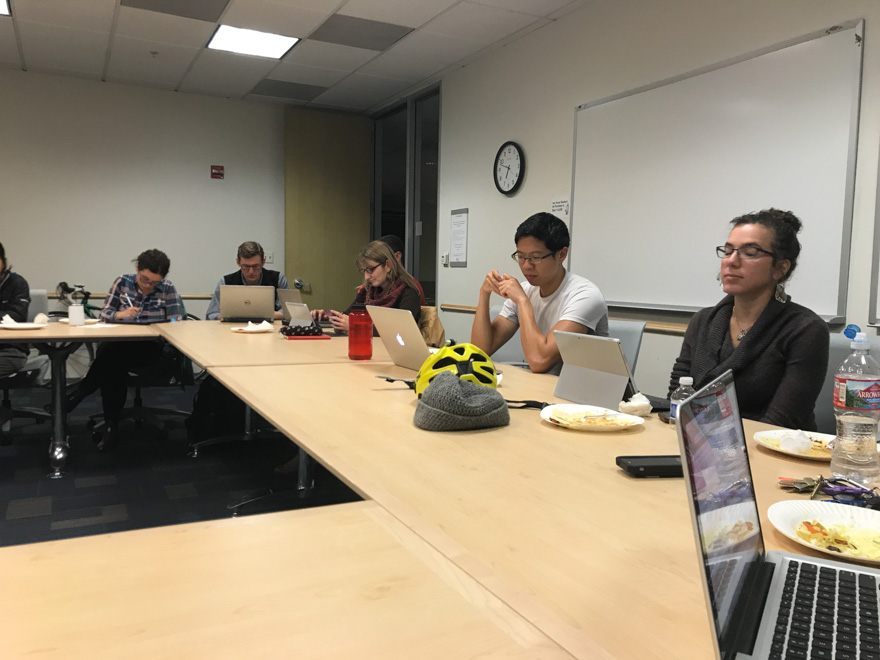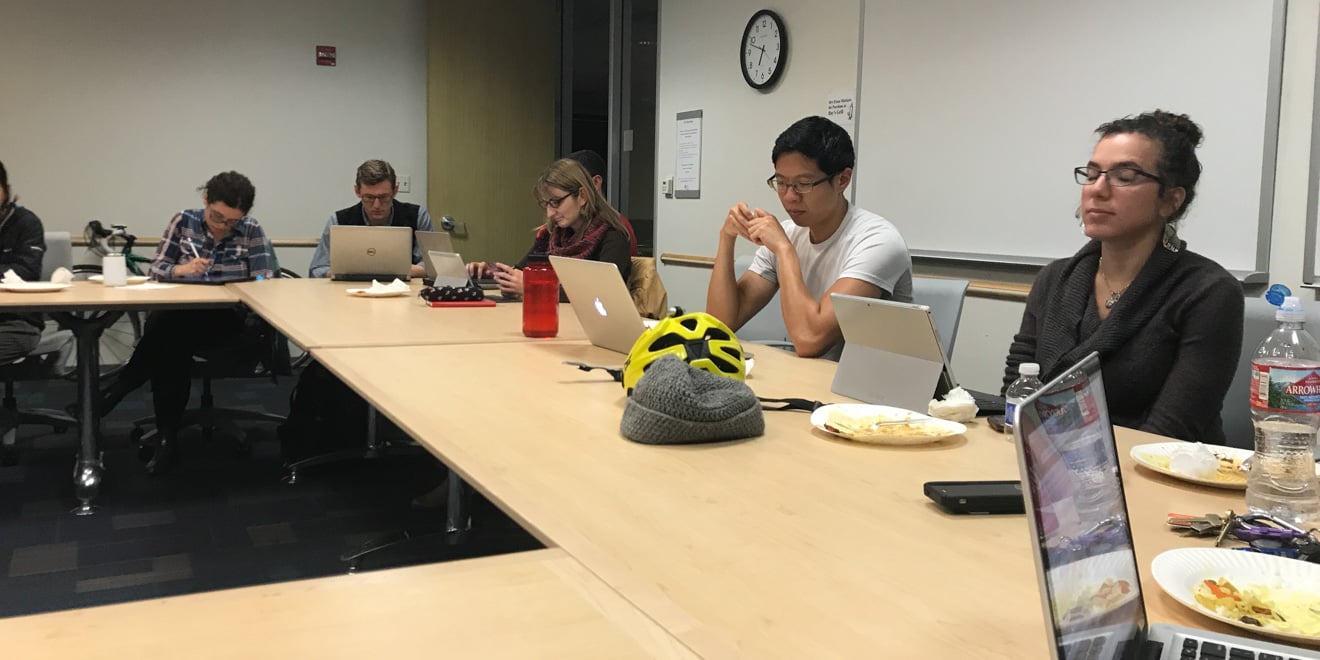At its meeting Wednesday evening, the Graduate Student Council (GSC) joined the ASSU in condemning Robert Spencer’s visit to campus and allocated $2,000 to fight a Republican tax bill currently making its way through Congress that would reduce tax breaks for graduate students.
Earlier this week, the Undergraduate Senate criticized the Stanford College Republicans’ (SCR’s) decision to host Spencer but did not revoke the Senate’s funding for the event, saying the student government has “an obligation to consider all student groups for funding equally, regardless of their respective ideologies.”
While SCR has framed Spencer’s visit as a chance to promote free speech and open discussion, the invite has sparked outrage on campus from many who find Spencer’s anti-Islam views repugnant.

Regarding Spencer, Council members debated whether condemning the event would only heighten its profile, but ultimately decided that action against the talk needed to be taken. The Council passed its resolution against the event, planned for Nov. 14.
Another major topic of discussion during the meeting was the Republican tax plan, which would have a significant impact on graduate students by making tuition waivers – a boon for students who work as teaching assistants and research assistants – subject to taxes.
A recent article in the Chronicle of Higher Education noted that, if the tax plan were to pass, “graduate students could find themselves paying taxes on a far greater amount of money than they actually receive in paychecks from their college.”
“Unless this can be circumvented, it would be a major disincentive for people to go to graduate school,” Claus O. Wilke, a professor of integrative biology at the University of Texas at Austin, told the Chronicle.
Across the U.S., master’s students receive an average of almost $11,000 in tuition waivers, while Ph.D. student receive almost $13,600 in waivers on average.
The funds for resisting the tax changes were allocated from discretionary spending and are intended for general expenses related to lobbying. Everything from pizza dinners for volunteers to the postage and envelopes needed to mail representatives can be expensed.
The GSC also continued its discussion of instances of wage theft affecting Stanford employees. GSC member Gregor Quack, a Ph.D. student, attended the Santa Clara county board of supervisors meeting on Tuesday to learn how the county plans to combat wage theft.
“In the space of three years [the state of California] found 44 million dollars’ worth of wage theft,” Quack said.
According to Quack, only five percent of stolen wages were refunded.
“It’s a big problem, and it’s bigger than I thought,” Quack said.
The board did not take any action on wage theft issues during the session, but supervisors reviewed a three part plan to prevent future theft.
The first two initiatives centered around issuing business and food service licenses. Businesses and restaurants would need these permits to conduct operations, and evidence of wage theft could act as grounds for the permits’ revocation.
The final initiative proposed creating an enforcement agency to combat wage theft that would remedy wage theft by bridging the gap between reported and refunded wages.
“[Wage theft is] illegal and evil by broad acknowledgment, but the only thing that happens now is that judgements happen and then they don’t get paid,” Quack said.
The Council also discussed the Graduate Thanksgiving dinner, slated for Nov. 23. The annual event is always popular with the graduate community and is expected to draw 1,800 people this year. Council member and Ph.D. student Gabriela Badica is finalizing plans with the event’s caterers to prepare what she called the “little army of food” required to feed the hungry attendees. The GSC thanked the Office of the Provost for sponsoring the dinner.
The Council also reviewed a petition started by Ph.D. student Tim MacKenzie asking the chemistry department to fully subsidize Cardinal Care for its graduate students. The petition has garnered over 150 signatures. Graduate chemistry students currently receive a 50 percent health care subsidy, but the remaining out of pocket costs represents about 20 percent of students’ discretionary income, according to the petition.
Different graduate departments have different health care plans, leaving some students with hefty insurance bills, MacKenzie said. Mackenzie reported that the dean of the chemistry department was unaware that health care subsidies were not standardized across departments.
The Graduate Student Council also approved various funding requests. A graduate-wide Big Game tailgate received funds from the Council. Bio-X events in conjunction with a Native American and queer students groups received funding. Scandinavians at Stanford received funding for a Christmas party.
Contact Nicholas Midler at midler ‘at’ stanford.edu
